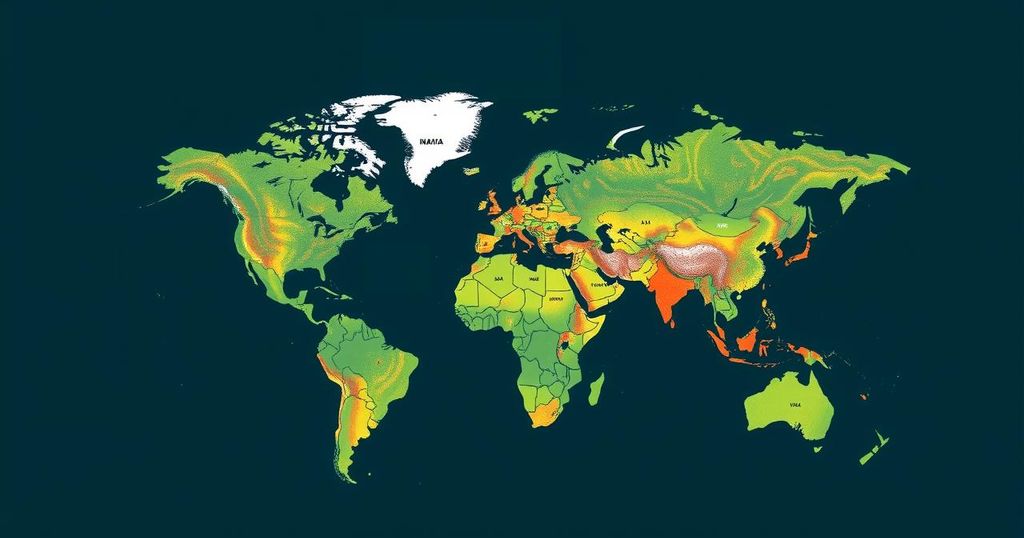The International Court of Justice is examining the legal obligations of major polluting countries regarding climate change. The hearings come after COP29, where developing nations criticized a $300 billion aid package as inadequate. Nearly 100 countries are involved in the proceedings, reflecting increasing skepticism about global climate negotiations.
The International Court of Justice (ICJ) convened in The Hague to deliberate on the legal responsibilities of major polluting nations regarding climate change and the implications of non-compliance. This hearing, which involves nearly 100 participating countries, follows the inconclusive outcomes of COP29, where developing nations expressed dissatisfaction with a commitment of $300 billion annually by 2035 from wealthier nations to combat climate change. The ongoing proceedings reflect a growing discontent with international climate negotiations, particularly among small island states that feel overlooked by recent agreements.
Climate change presents a significant challenge worldwide, disproportionately affecting vulnerable nations, particularly small island developing states. These nations are at the forefront of environmental degradation, and their appeals for justice and accountability from larger polluters have led to increased scrutiny of international climate policies. Following COP29, the need for more substantial commitments from wealthy nations has become paramount, prompting legal actions aimed at clarifying obligations under international law, specifically through proceedings at the ICJ.
In summary, the proceedings at the International Court of Justice represent a pivotal moment in the discourse surrounding climate change accountability. Small island nations, alongside developing countries, are seeking legal clarity on the obligations of major polluters, in light of recent disappointments in international agreements. As these hearings progress, they offer a potential avenue for addressing the perceived shortcomings of global climate negotiations and hold hope for more effective action against climate change.
Original Source: www.eenews.net







